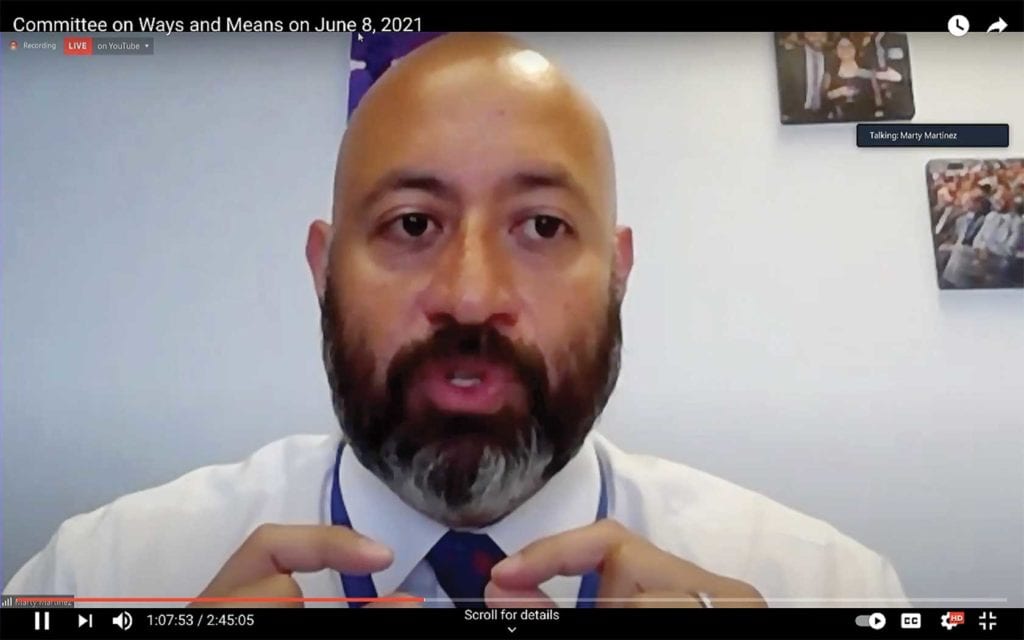
The federal American Rescue Plan (ARP) will channel $500 million to Boston in funds aimed at helping cities recover from COVID-19. The City Council’s Committee on Ways and Means met June 8 to weigh in on how the funds should be distributed to the businesses and communities that need it most.
According to the city’s chief financial officer, Justin Sterritt, the city will start by focusing on continuing the public health response to the COVID-19 pandemic, helping small businesses and recovering industries, and addressing the disparities that were worsened by COVID-19. Per acting Mayor Kim Janey’s emergency relief plan, the city will immediately be expending $50 million of the ARP funds on these four groups — public health, communities most impacted by COVID, the economy and small businesses.
Under the Janey administration’s plan, the city is dedicating:
• $4.6 million to acquire occupied rental housing to prevent displacement and convert into affordable housing
• $4 million to support the safe reopening of artist businesses
• $7 million for a mobile vaccine and testing operations and outreach
• $7.5 million to meet the demand for the Commercial Rental Relief Fund for small businesses
“We’ve also been informed by the Health Inequities Task Force, which is made up of 26 representatives who’ve given over 100 hours of weekly meetings since April, providing input,” said Celina Barrios-Millner, the city’s director of equity and inclusion. The task force included community experts from Whittier Health Center, the ACLU, Bethel AME Church and other organizations.
The largest batch of money in the first $50 million expenditure is going to small business relief, with $15.5 million covering a new grant for businesses that need help recovering and supporting existing grants.
Midori Morikawa, interim chief of economic development, said at the hearing that there is a high demand for aid that the city was not able to meet initially.
“We’ve been working very closely with the business owners as well as the landlords,” Morikawa said. “We also have weekly small business office hours in multiple languages.”
While many councilors focused on how the city would engage the community about the federal funding, Councilor Lydia Edwards indicated she was not happy with how the Janey administration is planning to spend the first $50 million.
“I think we should concentrate on smaller initiatives and give a lot more money,” she said.
Sterritt responded by saying the first $50 million is focused on filling in the gaps that the city couldn’t meet in initial funding.
“Certainly we’d love to put out as many dollars as we can but we also want to be very mindful,” he said.
Throughout their questioning, councilors brought up the funding directed at the addiction and homeless crisis at Massachusetts Avenue and Melnea Cass Boulevard.
Health and Human Services Chief Marty Martinez said one of the immediate needs his department is focused on is increasing capacity of the outreach effort happening on the ground.
“We’re going to use a piece of these resources to expand the medical street effort that’s happening in partnership with Healthcare for the Homeless,” Martinez said. Getting people into treatment, he said, requires more engagement, especially at night.
The mayor’s office sent this plan to the council to be voted on this Wednesday. If the $50 million is approved, it will be immediately expended.
Ways and Means Chair Kenzie Bok, councilor for District 8, said the true financial impact of the pandemic will not fully hit the city for a few years, meaning future budgets will still be dealing with the brunt of the economic crisis, and structural changes as well.
“I just want to articulate for the public that it’s a lot of money, but we’re dealing with all of those different challenges,” Bok said during the hearing.
Councilor Matt O’Malley, the president pro tempore acting as city council president since Kim Janey assumed her mayoral role, established the COVID-19 Recovery Committee to oversee the distribution of the funding.
The $500 million Boston expects through ARP strictly for local relief is much smaller than the total of $952 million in federal COVID relief funding Boston is expected to receive. Under the ARP, the city also expects $400 million for Boston Public Schools and $52 million for housing and homelessness.
That sum is also a small piece of the total aid the city expects from previous CARES Act funding (about $226 million) and the Coronavirus relief bill ($141 million) and the ARP combined.






